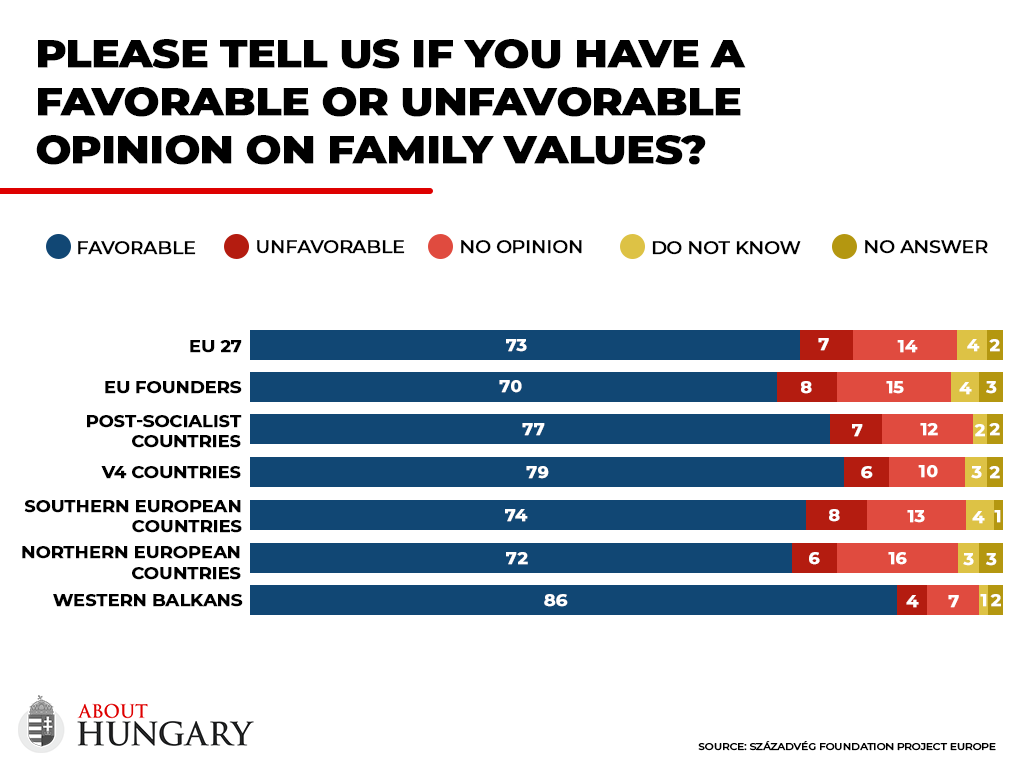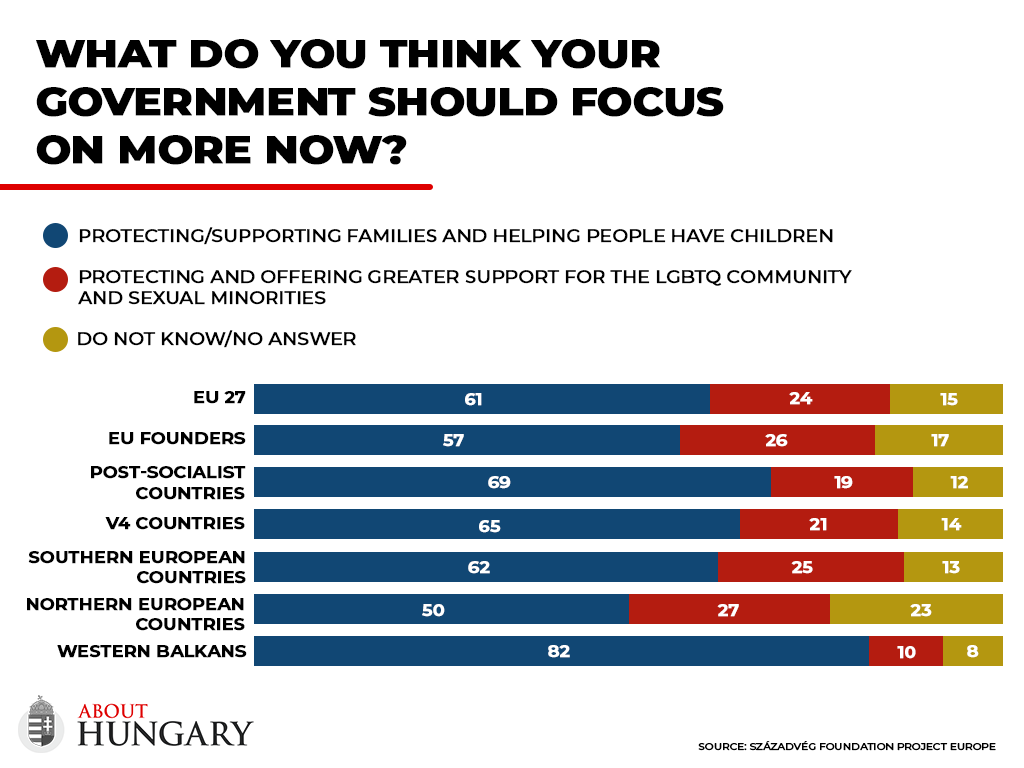Since 2016, Századvég Institute’s Project Europe research program has demonstrated that, despite the supposed differences in ideology, Europeans unequivocally value the institution of the family.
Last year, Századvég stated that Europeans would rather solve the continent's demographic crisis through family support and childbearing than through immigration.
This time around, the research series focused on the significance of family values, how the LGBTQ movement is viewed, and the impact of traditional family perceptions.
For Europeans, family values are extremely important.
It is extremely uncommon to find a social issue where there is almost universal social agreement. Recent years have demonstrated how important families are to most Europeans, and this is especially true in Hungary.
The most recent study by Századvég examined the importance of family values by country and groups of countries, as previous findings had clearly pointed in the same direction.
Some 73 percent of EU respondents hold a favorable attitude toward the idea of family, while only 7 percent said the opposite. Even in the countries with the lowest positive response rates — Sweden, Slovenia, Germany, and France — 66-68 percent of survey participants selected the somewhat positive response.


